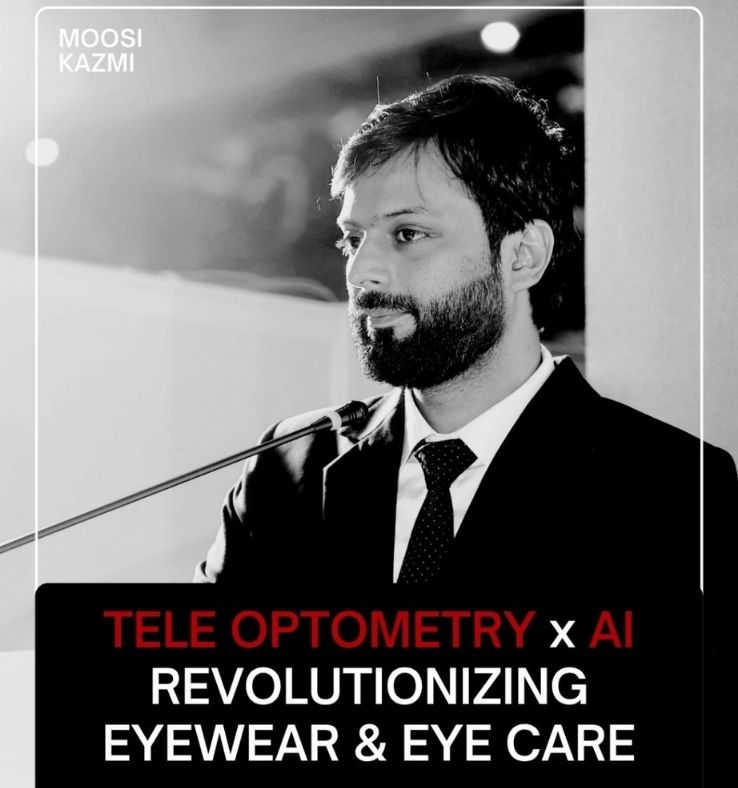Present and Future of Retail Opticians in India
_(1)1.jpg)
Consumer behavior is changing rapidly with credit or borrowing for consumption, which was not the case earlier. Equated Monthly instalments have become the norm in today’s lifestyle of the youth. The society is aspirational for having better standards of living and more importantly the Indians identity is globally visible with large corporations having Indian CEOs and sizable holding key positions.
To quote Mrs. Rama Bijapurkar in the book Lilliput Land, which is a fascinating read, the basis of Consumer India is still performance, features and price.
Opticians are not isolated by consumer behavior either with growing youth or demographic. The Middle Income band here is wide in comparison to rest of the world and not like to like in defining Middle Class as globally perceived .Therefore it is important to look at the market keeping the target audience in mind , Key factor in India’s favor is that it is estimated that 50% of the Indian population are below 30 years and the average age in India is 29 years . The young consumers are leading the change in digitalization, premiumization, urbanization. Lenskart understood the changing consumer behavior and demographic changes targeting this segment of the population and capitalized on the same to add consumers.
As all of us appreciate and are aware, the optician’s role is also advisory in nature for which credibility of the store is of ultimate importance followed with the commerce. While Optometrists must play the role of advisory at the clinic level in the store, the independent opticians & sales person who additionally interacts with customers need to be more than ever conscious of the spectacles being dispensed with has the endorsement of quality of the optician and not just the brand that they offer. This would be the key to differentiation.
The marketing costs to get new customers are going up each year and therefore while we must look at focusing on this with prudence, it is of equal importance to secure the existing loyal customers. Even more, the opticians play a significant role as an advisor and lead him to choose amongst all the offerings available. Gen Z consumers born mid 1990 to early 2010s values brands that are transparent, socially responsible and inclusive. We can use AI driven customization tools to cater to individual tastes for choice of frames and sunglasses. Millennials born early 1980s to mid-1990s while having similar attributes as Gen Z emphasize on durability and long-term investment value who prioritize quality over trends generally.
Tech focus must stay high on the agenda for any retail and must constantly evolve like effectively integrating and enriching consumer data & nalytics. Here working with the brand owners would help to bring in best practices to the business while maintaining the confidentiality of information with the opticians. AI driven tools can analyze historical data and trends from the store perspective , AI driven inventory management systems that can predict demand , optimize stock levels and automate reordering processes , AI customer relationship management enabling personalized recommendations are some that can leveraged and adapted to the growth of the business and profitability.
Consumers are quite conscious of climate change and sustainable planet for future generations to live in through the Sustainable Developmental Goals (SDG) listed by UN. Highly ecofriendly materials to resonate with environmentally conscious Gen Z consumers could be thought through. Any small efforts in contributing to this purpose would be seen well by the customers and can well start with packaging as a first step.

.jpg)

.jpg)
.jpg)
.jpg)


1.jpg)



.jpg)
.jpg)



_(Instagram_Post).jpg)
.jpg)
_(1080_x_1080_px).jpg)


with_UP_Cabinet_Minister_Sh_Nand_Gopal_Gupta_at_OpticsFair_demonstrating_Refraction.jpg)
with_UP_Cabinet_Minister_Sh_Nand_Gopal_Gupta_at_OpticsFair_demonstrating_Refraction_(1).jpg)

.jpg)








.jpg)



.png)




